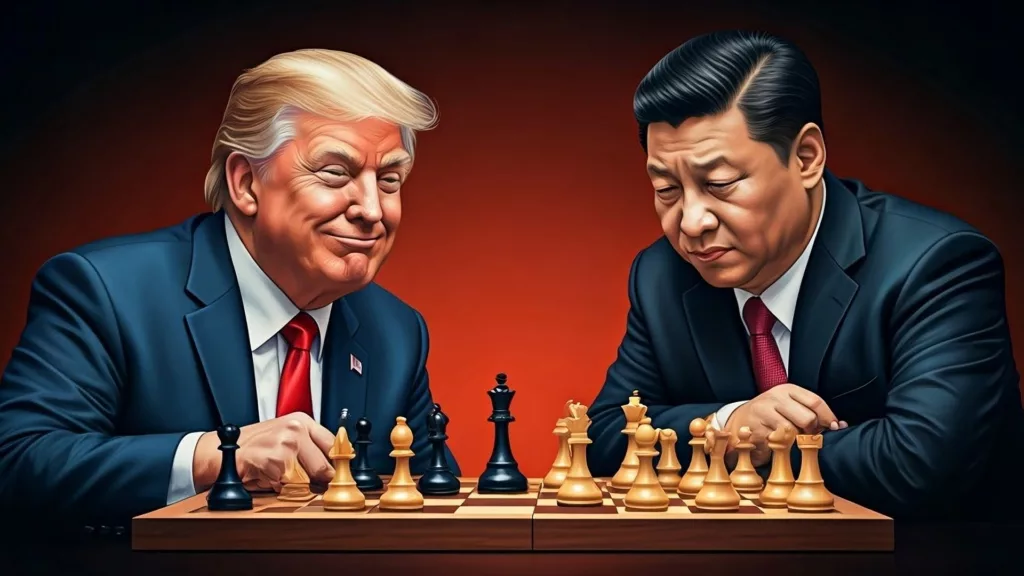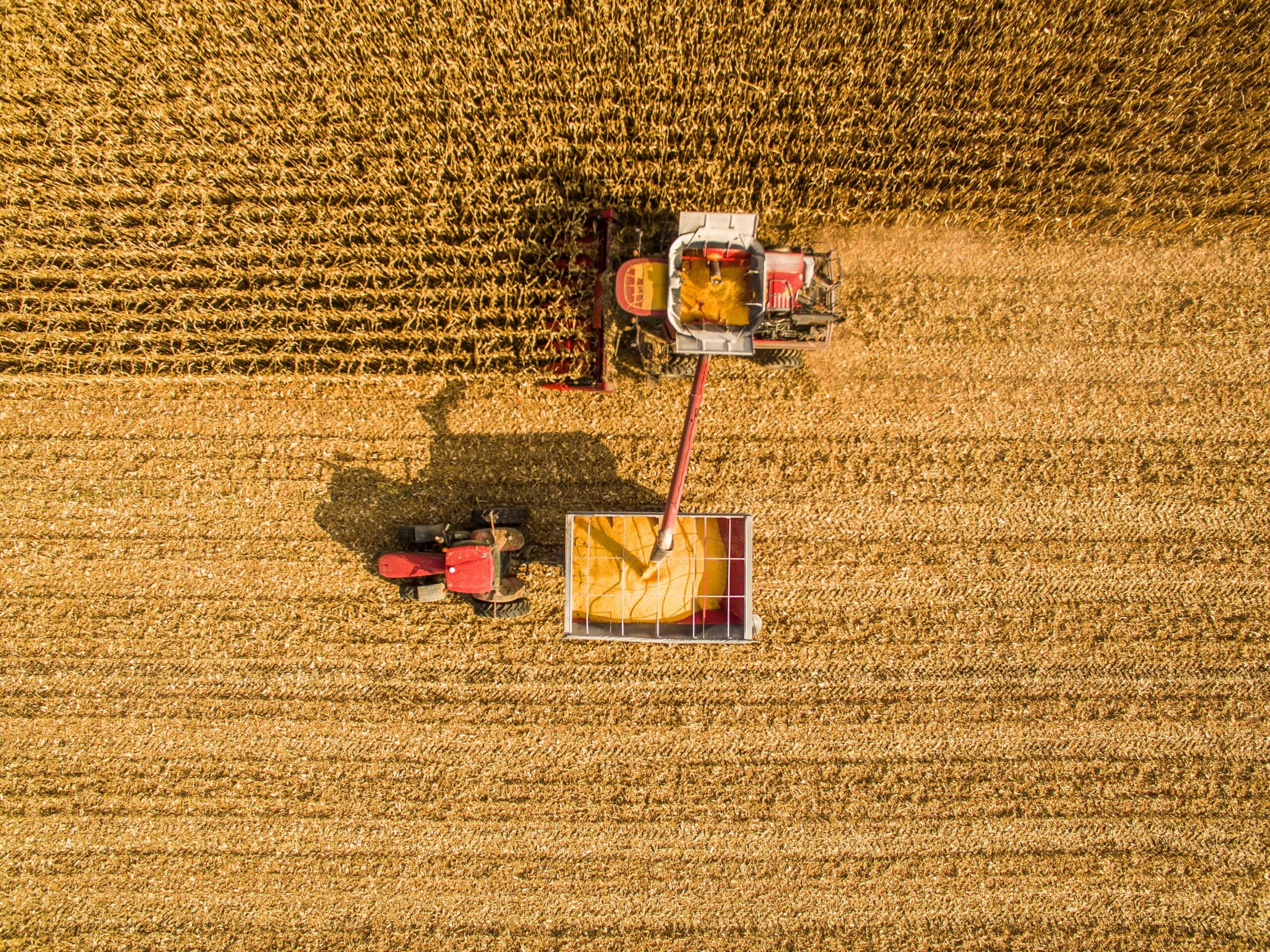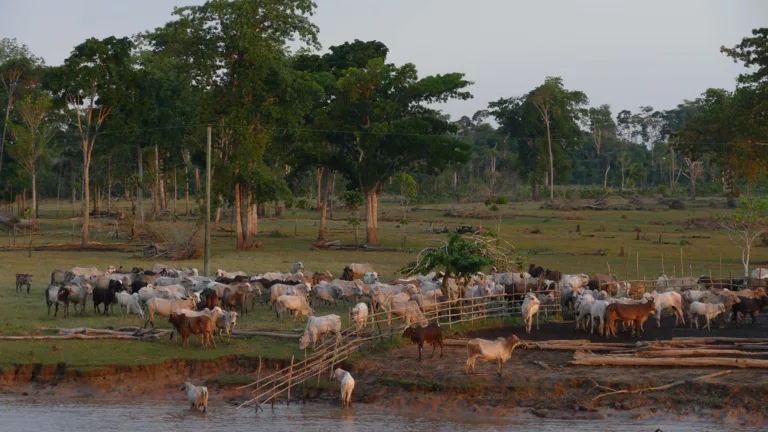
President Donald Trump’s tariff onslaught affected almost all U.S. trading partners, including Brazil. However, the agricultural superpower—which rivals the U.S. in several major commodity markets—may even benefit from the spike in tariffs. Still, an economic slowdown or recession would be harmful for everyone.
Brazil was hit with a 10% tariff, the lowest announced by the Trump administration. “It could be much worse,” said Marcos Montes, a director at Cecafe, the group representing Brazilian coffee exporters.
With other agricultural exporters targeted with higher tariffs, Brazil is expected to remain competitive in the U.S. market, according to analysts and representatives from the agricultural sector. The main concern lies in how U.S. consumers will react to rising prices.
Last year, Brazil exported $12 billion in agricultural products to the U.S., including $3.7 billion in forest products such as pulp. Following those on the top export list are coffee ($2.1 billion), beef ($1.3 billion), and orange juice ($1.1 billion).
Here’s what may happen to Brazil’s exports of these products if U.S. tariffs persist:
Coffee
As the world’s largest coffee consumer, the U.S. is a key market for Brazil, the biggest producer and exporter. The South American nation accounts for 32% of U.S. coffee imports, followed by Colombia (20%) and Vietnam (8%). For Americans, Brazil is a crucial supplier, and its exports are not expected to be directly affected by the tariffs, as other producers of Arabica coffee—such as Colombia, Honduras, and Costa Rica—have also been hit with a 10% tariff.
“These nations are tied in terms of tariffs, and Brazil is in a better position in supply terms to meet U.S. demand,” said Guilherme Morya, an analyst at Rabobank in Brazil. “The question is how resilient U.S. demand will be. It’s wait and see.”
Uncertainty over how U.S. consumers will react to higher coffee prices—recently hitting record highs—has weighed on New York futures. Since the Trump administration announced the tariffs on April 1, futures have dropped about 10%.
Regarding robusta, a cheaper variety used in instant coffee, Brazil may gain market share. Vietnam, the world’s largest robusta exporter, was hit with a 46% tariff. Indonesia, another major robusta producer, faces a 32% tariff. “Brazil gains a competitive advantage over these two countries,” Morya said.
“Between gains and losses, we’re seeing much more in the way of losses due to the high level of uncertainty and the devaluation of companies,” said Montes, from Cecafe.
Brazilian coffee exporters has been working alongside the National Coffee Association (NCA), which is holding meetings with lawmakers and Trump administration officials to discuss the possibility of exempting coffee from tariffs, as the U.S. has only isolated and very small coffee farms—and, as the world’s largest coffee consumer, relies on imports.
“Each $1 of coffee imports generates $43 for the U.S. economy,” Montes added. As Brazil exports “green coffee” to the U.S., American industries add value to the commodity and sell the final product at a higher price. The U.S. coffee industry supports 2.2 million jobs.
Beef
The U.S. was the second-largest destination for Brazilian beef last year, with shipments soaring 65%. Export volume is not expected to change significantly in the short term, as the 10% tariff is unlikely to damage Brazil’s competitiveness, according to Lygia Pimentel, a partner at Agrifatto consultancy.
With the U.S. cattle herd at its lowest in decades, the country will continue to rely on imports to stock supermarket shelves. “The share of imports in domestic consumption has recently risen from 10% to 15%,” Pimentel said.
Brazilian beef is already subject to a 26.4% import tax when entering the U.S., with the country having access to an annual quota of 65,000 tons exempt from tariffs. This quota is shared with other nations and is usually filled within a few months. More than 70% of Brazil’s beef exports to the U.S. last year were outside this quota, according to Abiec, the association representing beef exporters.
“It’s not a big deal for Brazil to face a 10% tariff,” Pimentel said. It remains unclear, however, whether the new tariff will be added on top of the existing one. In the medium to long term, U.S. shipments could be affected by reduced consumer demand due to food inflation.
Brazilian beef exports could even benefit from Trump’s sweeping tariffs, which may intensify trade disputes with countries more heavily impacted—like China.
“China has already halted imports of U.S. beef, and Australia has been filling that gap,” Pimentel noted. Like the U.S., Australia supplies high-quality beef, while Brazil exports larger volumes at lower prices. With inflation squeezing American consumers, they may shift to more affordable beef options—a move that could boost Brazilian exports to the U.S.
Orange Juice
Accounting for almost 40% of Brazil’s orange juice exports, U.S.-bound shipments of the product may take a hit from Trump’s tariffs. The cost of the new tariffs was estimated at $100 million per year, according to CitrusBR, a group representing Brazilian orange juice exporters. When added to existing tariffs—$86 million last year—the total cost for entering the U.S. market would rise to $186 million annually.
Trump’s tariffs are a fresh blow to Brazil’s orange juice exporters, who have already faced a 50% drop in New York prices from last year’s peak, due to declining global demand and expectations of increased supply.



